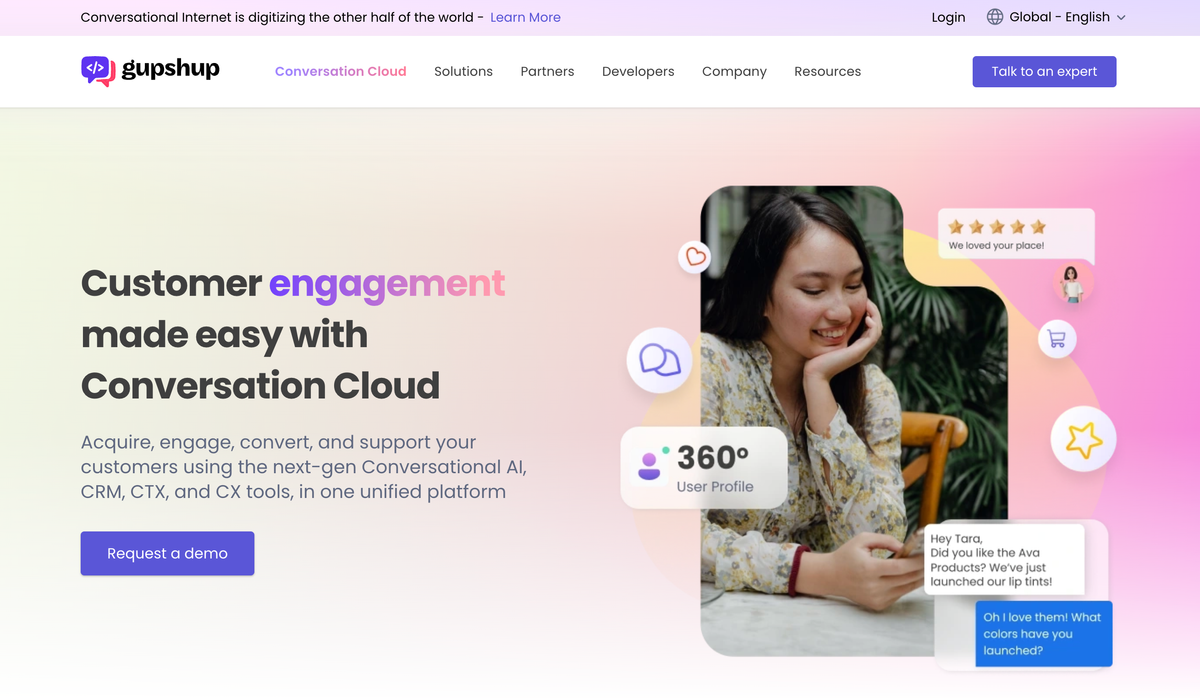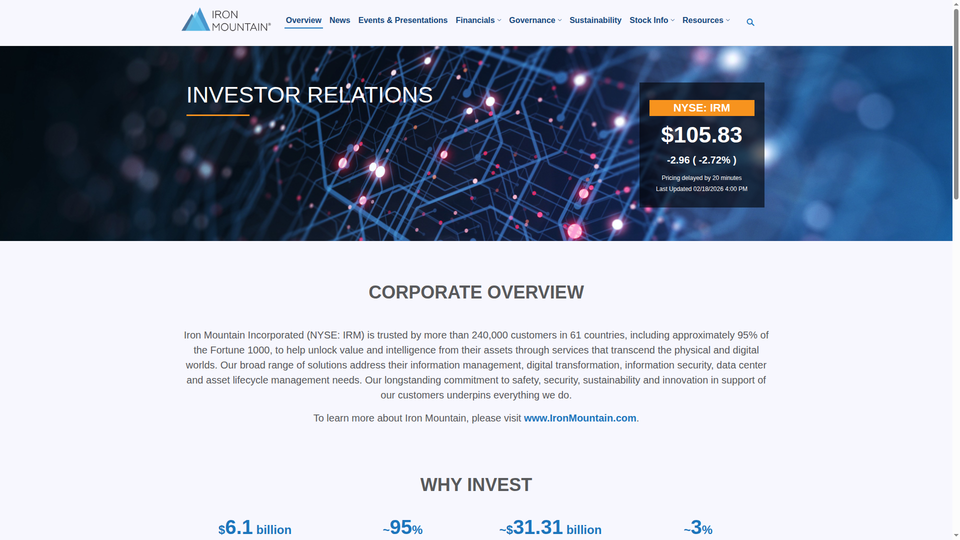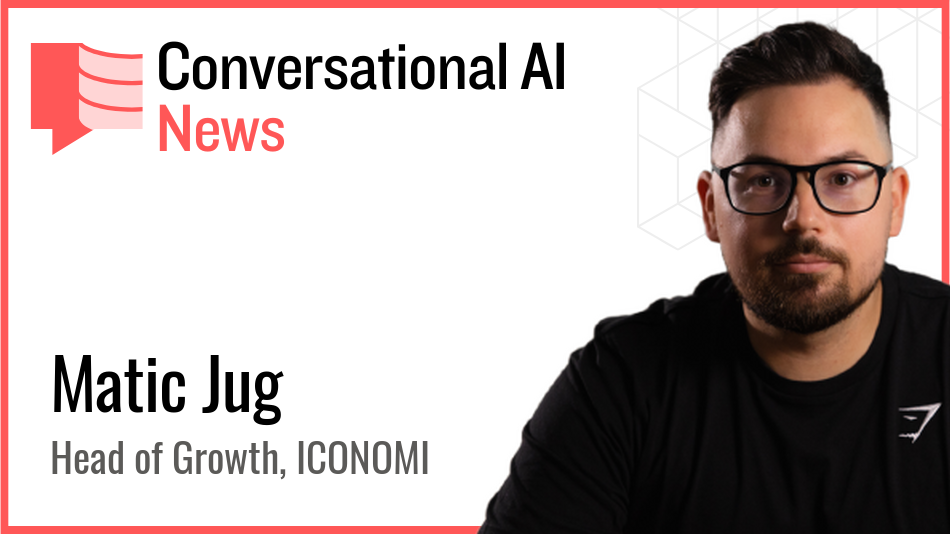Gupshup to increase staff by 20% to 1,400 & expand globally

One of the names I hear on the lips of many executives in the context of Conversational AI is Gupshup.
I'll get to their press release in just a moment.
First, some observations:
I was discussing a Conversational AI assessment project with a Financial Services executive recently and they used the following phrases, "... you know, companies like Kore, Gupshup".
That, I think is very telling.
Perception is everything.
In fact, I'd go so far as to suggest that perception – brand awareness and recognition – when it comes to Conversational AI, is everything.
Yes, there will be an RFP.
Yes, there will be all sorts of assessments and reviews (some, hopefully, involving me – let me know if you need help with your project!)
But fundamentally, some degree of name recognition is always valuable.
No one ever got fired buying IBM, right?
Interestingly, IBM didn't figure in that particular executive's consciousness – at all – even though I know they have a solid offering in the space.
How do you build name recognition? There's no one right answer to that question. Events. Branding. LinkedIn advertising. Roundtables. Earned media. Paid media. Podcasts. Word of mouth. Google.
And press releases.
Your own press releases are important. Don't think that it's only for journalists. Many executives I know purposefully scan through the 'press release' section of vendor websites to see how current they are. They're looking at dates, announcements, context.
Which brings me to Gupshup.
They're doing something right – first, to be in the head of one of the bank executives I'm advising, before I've even mentioned them and others. That is good news.
Second, making their own news.
You might argue that a statement of intent ("We will hire another 20% staff") isn't necessarily news. There's a school of thought that says, "Ok, so hire them, then put out the press release."
I'd suggest that this kind of approach is needed.
The Conversational AI space is actually very new.
It's been around for a long time – but in the eyes of many, especially those executives charged with implementing their own Conversational AI programmes, I'd suggest that the industry is less than 2 years old, in their mind.
OpenAI's ChatGPT changed everything. That's when the industry of Conversational AI was actually born.
Everything else before that was fantastic but not relevant in the minds of the executive class. This is despite the fact we were doing it very effectively at my bank back in 2016/2017, if memory serves.
ChatGPT showed normal people what "AI" could do.
I think it's fair to say that's when the senior executives began to have a lot more airtime for "AI".
Because it's so "new", it's essential to stamp your authority.
You can't absolutely cannot rely on having great technology, great pedigree. You have to stamp your authority on the market. You have to tell your story. You have to be out there, constantly and repeatedly. You need to be at every event. You need to generating your own news – you can't wait for mainstream media, either.
Yes, you also need fantastic technology. You need to put a lot of effort into developing that and making sure your customer success teams are the best in the business. You ideally need your customers singing your praises.
In a developing market like Conversational AI, you absolutely need to be talked about.
Whether you're earning it, or paying for it, I'd suggest it doesn't necessarily matter.
The market is still struggling, at the moment, to define who the leaders are. I don't think it's set, or decided yet – this is my feeling based on the dialogues, meetings and workshops I've been having this year.
Analyst reports are one thing. They're useful to an extent. But what many executives I'm speaking to want to know is the answer to this question: Who's the actual best? Who does everyone else use?
Executives will certainly listen to the analyst reports and award winners. They'll also listen to experienced advisors like me. They'll look at press, they'll use experience from roundtables, events and so on – all of this goes into the mix to help form that viewpoint, WAY WAY before the RFP.
It's too late when you're at RFP stage. Most vendors think they can exert the 'mix' of influence during the RFP. Sometimes. But all too often, I see the 'gut feel' decision of the deciding executive, informed by all those loose factors above, is already made before the RFP starts.
I see a lot of vendors understanding this.
I see a lot who either don't understand or can't adapt.
Gupshup gets it.
You can tell by the press release. The company is continuing to make waves – and I think their recent press release announcing their intent to increase hires by 20% is worthy of attention. It's a great example of them talking themselves up.
And whilst some might prefer to leave that to others, my view is this: If you're not going to sing your praises, who else is?
Here's the first paragraph from the release:
Gupshup, the world’s leading Conversational Experience Cloud is witnessing solid demand for its Conversational AI solutions in India and International markets. And to fuel this growth the company undertook accelerated hiring in FY24, growing its workforce by 20% to 1400 people. The hires will support Gupshup’s growth and expansion across India, Latin America, Middle East, SEA, Africa and Europe.
That's quite an opening few sentences!
They continue in the release to highlight 40% YoT growth and that they're a profitable unicorn. They also highlight some of the big customers they're working with including:
L’Oréal, P&G, Grupo Carso, GoJek, Nestle, Petromin, and Netflix among others.
Nice work Team Gupshup.
If you're looking for an executive to connect with at Gupshup, I reckon Mike Donohue, SVP of Global Sales would be a good place to start:

You can read more about Gupshup on the Conversational AI Marketplace.















